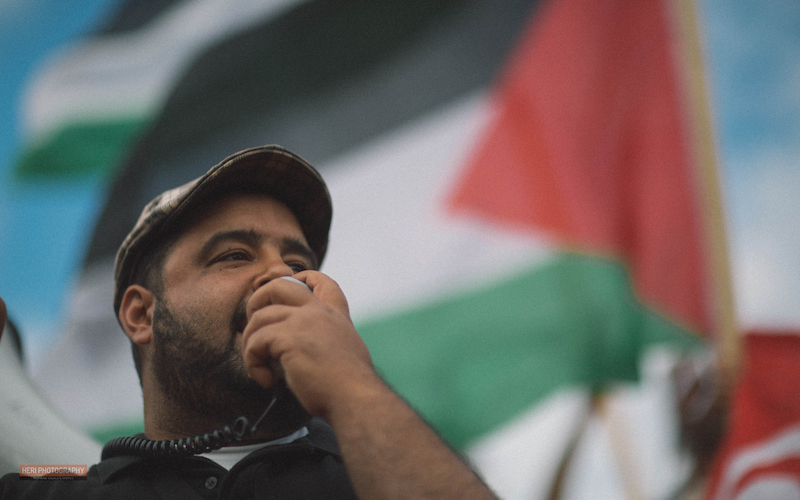
Should Israel Bar BDS Activists?
Last week, an interfaith delegation from the United States was barred from boarding a flight to Israel due to their public support of boycotting the country. The group was clearly upset, especially Rabbi Alissa Wise who accused the country of discriminating against her for her political beliefs, and reflected that she and her fellow delegation members were “the first victims.” This has subsequently resulted in a heated public debate that has been blazing throughout Israel and the diaspora Jewry ever since.
There are three key components that must be explored when approaching this dilemma.
The first is the question of free speech. Many claim that it is anti-democratic to ban or boycott supporters from entering the country because it is an attack on their right to free speech. Let me be clear, I support free speech. I firmly believe that free speech should be fought for, valued and protected, but alongside that, every democratic value has its boundaries and when free speech is more than just speech, but also an action, taken against a country or a people, we must ask ourselves if it is still legitimate.
A great example of how this debate has manifested itself in other countries can be found in the case of David Irving. Irving, a known Holocaust denier, was denied a visa to enter Australia on multiple occasions because his speech included spewing hate, anti-Semitism, and Holocaust denial which were deemed outside the boundaries of legitimate free speech. Canada, Italy, and Germany felt the same way. Our case is no different. The BDS (Boycott, Divestment, Sanctions) movement spreads lies, rejects the existence of the State of Israel (a modern form of anti-Semitism) and has even been known to support terror and encourage violence. So even if we minimize the actions of the BDS to “speech,” it seems that it is well within Israel’s rights to bar them from entering the country. To provide some perspective, Israel has also limited the rights of extremists on the Right when needed, such as when the Kach party was banned from participating in the election.
The second central question is whether or not we should be barring these types of people from entering the country. Many have argued that barring Rabbi Wise and others like her was a mistake because we should debate those we disagree with, not silence them. Usually, this is a point I would agree with, but the BDS case is different because an organization whose ultimate goal is destroying the State of Israel has no basis for debate. To quote President Rivlin: “Criticism comes of the concern and even the necessity to keep Israel strong…The BDS movement rejects Israel’s existence and does not aim to advance peace…”
We should accept criticism and value it as an important element of keeping Israel strong, as is the case with every country, but we must also be able to see the difference between criticism and concrete threats. After all, the BDS movement’s leaders have never been satisfied with the two state solution or any other solution that is acceptable to Israel. They simply do not believe in the concept of Israel as the nation state of the Jewish people. In fact, the major leader of the BDS movement, Marwan Barghouti, has repeatedly expressed his opposition to Israel’s right to exist as the nation state of the Jewish people even within the 1967 borders. As such, it seems obvious that Rabbi Wise and other BDS activists are not presenting offering legitimate criticism that is worthy of debate.
Finally, the “slippery slope” argument should be explored. Many argue that there is a danger in barring boycott supporters because tomorrow we may limit more rights in more ways for more people. There are two central problems with this argument. The first is that contrary to what Rabbi Wise may have claimed in her recent op-ed, she, in fact, was not barred “due to her political beliefs,” but rather because of her actions.
Rabbi Wise and her supporters were banned for taking action against Israel, by publicly supporting a movement that rejects the very existence of Israel. The second problem with the “slippery slope” argument is that one could use the same argument to make the opposite point, more convincingly. If Israel was to give into public pressure and allow in people who are actively trying to destroy it, that could be the start of a slippery slope that would end with us waking one day having no Israel, no Jewish homeland, and yet again, no ways or means of defending ourselves against the many threats that exist today.
In light of all this, I see no problem with barring boycott activists from entering Israel. Not because I am anti-democratic, but because I want to protect Israel’s vibrant democracy. I cherish my right to speak freely and know that it shouldn’t be used as a weapon against the only liberal democracy in the Middle East. I know that we must have true debates with real partners on these important issues and that is why we must not waste our time appeasing those who don’t even attempt to find common ground.

